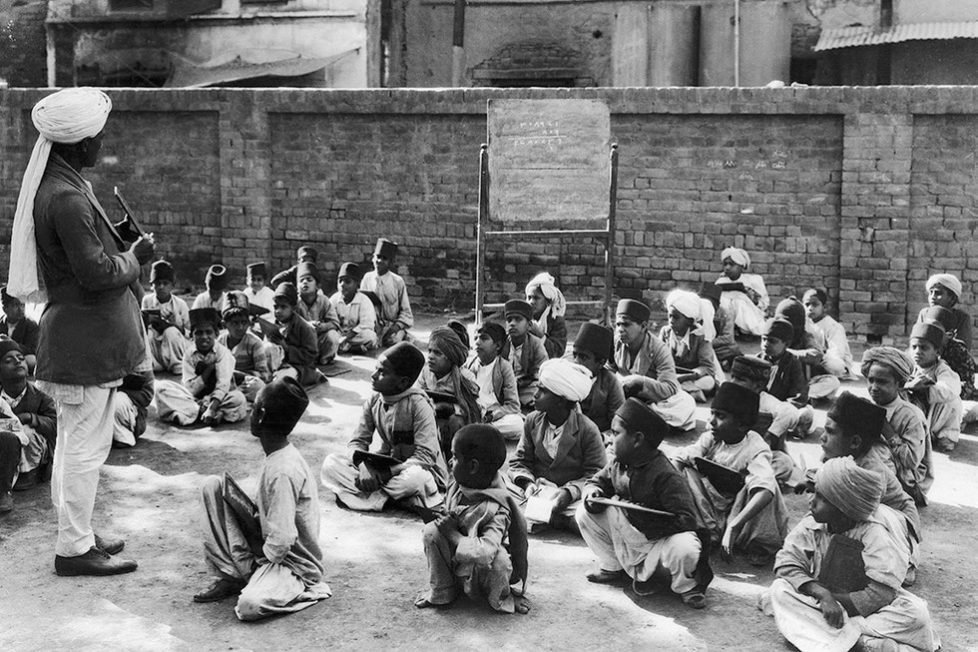Colonial education as a weapon of conquest and dominance


Many members of the commentariat class feel the need to justify themselves in relation to the West, echoing Macaulay and his contemporaries who saw Western values and accomplishments as the gold standard to which the rest of the world must aspire. This is when the lingering effects of colonization on the psyche of once-colonized people become apparent. Through the education system they established, the British attempted to change the collective consciousness of Indians. They saw education as an ideological tool that could be used to rule over the locals in all aspects of their lives. It is therefore not unexpected that J. Farish, a representative of the Bombay government, said in his letter in 1838 that he resonated with these trends;
“The natives of India must be kept down by a sense of our power, or they must willingly submit from a conviction that we are wiser, juster, and more humane to improve their conditions.” Elaborating further on education’s impact on the collective consciousness of the colonized people, he asserted, “If well-directed, the progress of education would undoubtedly increase our moral hold over India, but, at the same time, we should also ensure that it does not lead the Natives to a consciousness of their own strength.”
One of the key causes of British growth in India, according to CA Bayly’s argument in his book “Empire and Information,” was their capacity to oversee an already-existing and efficient information organization. Therefore, wherever they thought it was suitable, the British used education to further their imperial objectives. Additionally, the colonial authority saw to it that native informal village schools were demolished and replaced with fee-based, strictly regulated grant-in-aid institutions (very few in numbers). Additionally, a uniform curriculum made sure that the “downward infiltration” hypothesis persisted.
Instead, the colonial authorities spent money on creating higher education institutions to create a cadre of low-level, loyal Indian bureaucrats who would work for little pay to help staff the provincial offices and serve as a buffer or middle class between the government and the people.
The engineering curriculum was translated into vernacular languages because the colonial authority in some areas wanted native workers to assist British surveyors and engineers in their extractive activity. The first attempt of this kind was conducted in a college established in Bombay by Elphinstone, under the direction of Lt. George Jervis. These endeavors, albeit inconsistent, finally gave way to English as the primary medium of instruction throughout all higher education institutions. According to Alfred Chatterton’s book, “Industrial Evolution in India,
“Both at the secondary & university levels, English was used exclusively as the language of instruction, & for those who reached these levels, the separation from their culture was complete.”
Since the publishing of Macaulay’s minutes, all colonial educational strategies have been geared toward destroying the regional epistemes, and the indigenous ways of knowing. These policies tried to define the boundaries of knowledge, as well as what qualified as genuine information and how it could be properly created. They were based on the ideals of racial supremacy and colonial distinction. The overarching goal of these programs was to instill in the locals a sense of inferiority complex by fostering the notion that the colonized were fundamentally different from (and beneath) the Western colonists.
Even at a time when colonialists were experimenting with orientalist education policies under the direction of Warren Hastings, the first Governor-General of India, there were people like Charles Grant who were quite convinced of the superiority of western knowledge and how it could be used to truly civilize the natives. In his essay “Observations on the State of Society,” Grant stated (1792):
“Growing familiarity with Western learning, made possible by increasing knowledge of the English language, would silently undermine, and at length subvert, the fabric of error that held Hindu society together.”
The goal of colonial education was to instill a “colonial mentality” in Indians and to cause them to question their own identities.
As a result, colonial education propagated the notion that non-Europeans needed to first become fully human and civilized in order for them to do so, and that Indians needed to radically cut themselves off from their own knowledge and civilizational legacy. As a result, Indian college students by the middle of the 19th century knew nothing about their own history and were instead reading an Oxford text and giving a recitation on a complicated historical topic involving King Alfred and the Norman Conquest.
As a result of such education, obtaining employment in the colonial administration became the primary motivation, and the entire educational system was geared towards providing training for government services. Many of the educated Indians were reduced to working as clerks because there were not enough jobs for everyone.
India still has a sizable state bureaucracy and patronage system, continuing the colonial history, and nearly all institutions are little more than relics of what they once were. Our school and college curricula still have the propensity to place a significant amount of emphasis on English-language works as a result of the continuous glorification of the English corpus as the ideal.
DISCLAIMER: The author is solely responsible for the views expressed in this article. The author carries the responsibility for citing and/or licensing of images utilized within the text.
